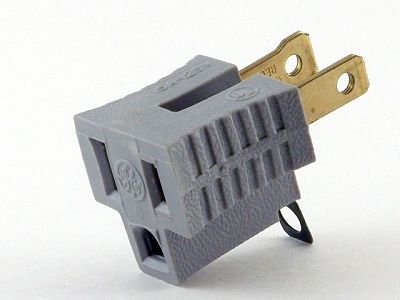Up until now, old debts lived on, until the person who owed the debt pulled the plug.
That’s right: it is the person who is liable for the debt who can kill the debt off, not the person to whom the money is owed.
Because, at law, there’s a limit on the age of a debt that can be collected through the courts. That limit is the statute of limitations.
But the statute doesn’t keep creditors from suing on old debt. It just keeps them from winning in court.
But to get the protection of the statute of limitations, the person who’s been sued has to file an answer and assert the age of the debt.
And all too many people who are sued for old debt don’t file an answer and don’t contest the enforceability of the debt.
So they lose, despite the age of the debt. They don’t show up to pull the plug.
UNTIL NOW.
California bans suit by debt buyers on old debt
New California law prohibits the filing of suit on old debts, if the person filing is a debt buyer. Civil Code 1788.56
A debt buyer shall not bring suit or initiate an arbitration or other legal proceeding to collect a consumer debt if the applicable statute of limitations on the debt buyer’s claim has expired.
No longer can a debt buyer get a judgment on ancient debt just because the person sued doesn’t show up.
The burden of proof, so to speak, has shifted from creditor to debtor.
And maybe, in California, taken the profit out of buying defaulted debt.
For most consumer debts, the California statute of limitations is four years from the last activity on the account. Chart for other states statutes of limitation.
Trade in bad debt
There is an entire industry that buys debts that have gone unpaid for a long while and trying to collect it.
Do a Google search for “debt buyer” and the paid listings at the top of the results are people selling bad debts to others to collect.
The purchase price is low, and the buyer only has to collect a few accounts in a portfolio to make some money.
Now, the debt buyer may be getting trouble in the package as well. The debt may be discharged in bankruptcy; the debtor may have passed away. Usually the buyer gets no supporting documentation, just a spreadsheet with name, account number and balance.
And sometimes, the same portfolio has been sold to different buyers. Jake Halperin’s book Bad Paper about debt buyers reads like a gangster novel. Rival debt buyers meet each other with guns and machetes. Really.
Details on ban
The new law defines debt buyer:
“Debt buyer” means a person or entity that is regularly engaged in the business of purchasing charged-off consumer debt for collection purposes, whether it collects the debt itself, hires a third party for collection, or hires an attorney-at-law for collection litigation. “Debt buyer” does not mean a person or entity that acquires a charged-off consumer debt incidental to the purchase of a portfolio predominantly consisting of consumer debt that has not been charged off. Civil Code 1788.50(a)(1).
And it defines charged off debt:
“Charged-off consumer debt” means a consumer debt that has been removed from a creditor’s books as an asset and treated as a loss or expense.Civil Code 1788.50(a)(2).
Better yet, there are remedies for anyone sued in violation of the law:
§ 1788.62. Amount of liability for violation; Costs and fees; Factors affecting amount of liability; Violation not intentional and result of error; Limitation on action; Preclusion of recovery
(a) In the case of an action brought by an individual or individuals, a debt buyer that violates any provision of this title with respect to any person shall be liable to that person in an amount equal to the sum of the following:
(1) Any actual damages sustained by that person as a result of the violation, including, but not limited to, the amount of any judgment obtained by the debt buyer as a result of a time-barred suit to collect a debt from that person.
(2) Statutory damages in an amount as the court may allow, which shall not be less than one hundred dollars ($100) nor greater than one thousand dollars ($1,000).
(b) In the case of a class action, a debt buyer that violates any provision of this title shall be liable for any statutory damages for each named plaintiff as provided in paragraph (2) of subdivision (a). If the court finds that the debt buyer engaged in a pattern and practice of violating any provision of this title, the court may award additional damages to the class in an amount not to exceed the lesser of five hundred thousand dollars ($500,000) or 1 percent of the net worth of the debt buyer.
(c)
(1) In the case of any successful action to enforce liability under this section, the court shall award costs of the action, together with reasonable attorney’s fees as determined by the court.
(2) Reasonable attorney’s fees may be awarded to a prevailing debt buyer upon a finding by the court that the plaintiff’s prosecution of the action was not in good faith.
(d) In determining the amount of liability under subdivision (b), the court shall consider, among other relevant factors, the frequency and persistence of noncompliance by the debt buyer, the nature of the noncompliance, the resources of the debt buyer, and the number of persons adversely affected.
(e) A debt buyer shall have no civil liability under this section if the debt buyer shows by a preponderance of evidence that the violation was not intentional and resulted from a bona fide error, and occurred notwithstanding the maintenance of procedures reasonably adopted to avoid any error.
(f) An action to enforce any liability created by this title shall be brought within one year from the date of the last violation.
(g) Recovery in an action brought under the Rosenthal Fair Debt Collection Practices Act (Title 1.6C (commencing with Section 1788)) or the federal Fair Debt Collection Practices Act (15 U.S.C. Sec. 1692 et seq.) shall preclude recovery for the same acts in an action brought under this title.
In the words of Neil Armstrong, it’s one small step for man…..
Image courtesy of Wikipedia and PleaseStand.







[…] Debt Buyers Can't Sue In California. Up until now, old debts lived on, until the person who owed the debt pulled the plug. That’s right: it is the person who is liable for the debt who can kill the debt off, not the person to whom the money is owed. Because, at law, there’s a limit on the age of a debt that can be collected through the courts. That limit is the statute of limitations. But the statute doesn’t keep creditors from suing on old debt. It just keeps them from winning in court. But to get the protection of the statute of limitations, the person who’s been sued has to file an answer and assert the age of the debt. And all too many people who are sued for old debt don’t file an answer and don’t contest the enforceability of the debt. So they lose, despite the age of the debt. California bans suit by debt buyers on old debt New California law prohibits the filing of suit on old debts, if the person filing is a debt buyer. […]